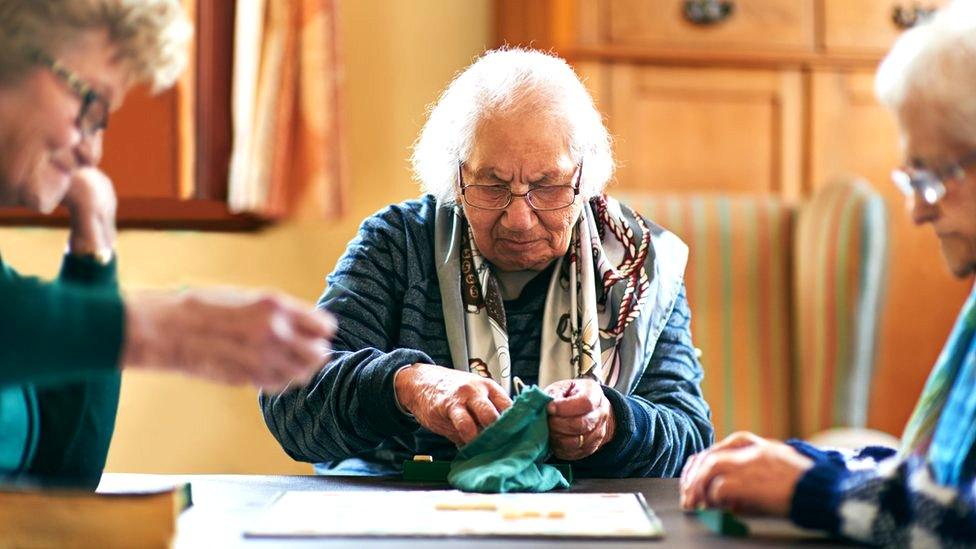How can social care be funded?
- Published

The government is expected to allow councils in England to raise extra cash for social care
It's one of the political "unsayables". Behind closed doors nearly every politician admits that the current system for paying for health and social care is decades out of date.
But very few of them are willing to say publicly that reform is long overdue.
Even though the government is this Thursday expected to announce that councils will be able to raise a bit more cash from their taxpayers towards paying to care for our elderly with dignity, few in Westminster would pretend that's anything like a long-term solution.
So what is? Sources say the Cabinet Office is looking at various mechanisms to find some answers.
But whatever they come up with, it won't be easy to get other political parties to buy in, especially with a small majority. So maybe it requires a different kind of fix.
The BBC has been told that Number 10 was considering plans for a cross-party commission to look at the costs of health and social care, before the referendum.
After three former health ministers - Norman Lamb, the Liberal Democrat, Stephen Dorrell, a Conservative, and Labour's Alan Milburn - launched a bid for a national review to find consensus, David Cameron's team invited the three to present their plan to the government, in a seeming acknowledgement that the current system is not sustainable.
Norman Lamb told me: "We went in and talked to them and presented them with a paper and then the whole run-up to the referendum took over and we never got any response from that and then of course there's been a change of government but the need for this government to engage in this and for all parties to stand up to their responsibilities as well, to join a process, to ensure that we reach a one in a generation settlement for the health and care settlement I think is absolutely fundamental."
When asked what he would say to Theresa May's team, Mr Lamb replied: "Engage. Talk to us now.
"There is an urgency about this. If you keep sleepwalking towards the edge of the precipice, real people up and down our country will suffer."
Baroness Cavendish, who held the talks in Number 10 said: "I was very attracted to the idea that we might be able to get cross-party air cover for a solution..... we all know that the 1948 NHS created a system that is now not fit for purpose because it doesn't address the new challenges."
She said she did not think the "impasse" could be solved without a process that involves all political parties.
Some ministers are known to be encouraging Theresa May's government to consider the idea of a commission. One of its supporters in government told me "there is a recognition that as a civilised society we need to spend more".
But another minister said there also had to be a conversation about how much families had to contribute and that maybe "people's expectations" had to be modified.
Changes in our society make this one of the hardest questions ministers need to answer. There have certainly been plenty of attempts before.
But the reality of what many councils - and more importantly, thousands of families - are now experiencing in their lives, makes it day by day harder to ignore.